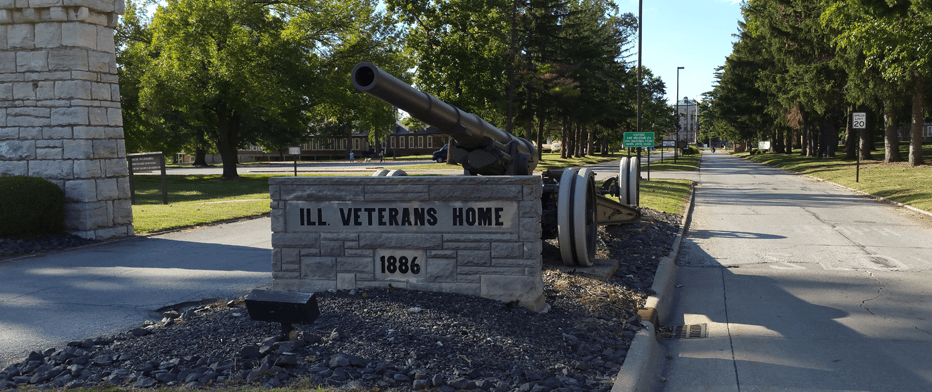 Gov. Bruce Rauner has vetoed a bill that would have raised the caps on negligence awards paid out by the state through the Court of Claims system. The legislation – which would have raised the maximum award on Court of Claims cases from $100,000.00 to $2 million – had been passed by the Illinois General Assembly largely in response to the recent Legionnaires’ disease outbreak at the Illinois Veterans’ Home in Quincy, IL.
Gov. Bruce Rauner has vetoed a bill that would have raised the caps on negligence awards paid out by the state through the Court of Claims system. The legislation – which would have raised the maximum award on Court of Claims cases from $100,000.00 to $2 million – had been passed by the Illinois General Assembly largely in response to the recent Legionnaires’ disease outbreak at the Illinois Veterans’ Home in Quincy, IL.
Legionnaires’ Disease Outbreak and the Court of Claims
The Court of Claims has jurisdiction over claims brought against the state of Illinois, including the twelve claims filed by the families pursuing damages over multiple outbreaks of Legionnaires’ disease – a form of waterborne pneumonia – at the state-run nursing home facility.
The maximum award for Court of Claims cases has historically been capped at $100,000.00. Senate Bill 2481, known as the Commitment to Justice Act, was introduced by Democratic Sen. Michael Hastings of Tinley Park and passed by both houses of the General Assembly. It raises the maximum award to $2 million, though the bill left language in place exempting cases involving a state-owned vehicle from that limit. Additionally, it allowed the court to adjust the maximum award to reflect increases in the Consumer Price Index determined by the United States Department of Labor.
The changes specifically affected cases filed since July 1, 2015, the date of the first known Legionnaires’ disease outbreak at the Illinois Veterans’ Home. Four such outbreaks have occurred in the facility since that time.
On Aug. 24, 2018, Gov. Rauner vetoed the legislation. In his message to lawmakers, he recommended setting the award cap at $300,000.00 and wrote that raising the cap on damages to $2 million is “effectively ignoring the impact of vastly expanded future litigation on the fiscal position of the state and its taxpayers.”
The Illinois Trial Lawyers Association (ITLA), a plaintiff lawyer advocacy group, noted that the $100,000.00 cap, which was set in 1971, is the lowest in the United States.
Sharp Words for Rauner
ITLA President Mark Prince called the veto “heartless” and said that Rauner “failed our veterans and their families.”
“From the outset of the crisis in Quincy that led to the tragic death of our heroes,” Prince said, “the [g]overnor has been interested only in covering up, shifting blame, and paying hollow lip service to the victims and their families.”
Sen. Hastings was also highly critical of Rauner’s veto of the recent legislation.
“I cannot begin to comprehend the loss these families have had to go through,” Hastings said. “This measure was a small attempt to help them obtain justice for these awful circumstances. However, the governor’s actions have stalled the wheels of justice once again.”
Additionally, Hastings had sharp words for Rauner’s initial handling of the Legionnaires’ disease crisis that prompted the legislation.
“This isn’t about money,” he said. “This is about justice for families for the governor’s gross negligence. He failed to act. He has to live with his decisions. But the problem is that these families are going to have to live with this guy’s failure for the rest of their lives and also without their loved ones.”
Rauner’s Handling of Crisis at Illinois Veterans’ Home
The senator’s rebuke of Rauner’s performance has been echoed by other lawmakers and observers of the crisis, which involved multiple outbreaks of Legionnaires’ disease at the Illinois Veterans’ Home.
Rauner first visited the facility in 2016. At the time, he informed the press that the state was closely monitoring the water at the facility for Legionella pneumophila, the bacterium that causes Legionnaires’ disease. Within months, however, three more cases of Legionnaires’ disease hit the nursing home, resulting in the death of at least one other person.
Rauner faced particular criticism for not tackling the problem at the Illinois Veterans’ Home sooner, a charge amplified by a December 2017 WBEZ report that demonstrated that officials in Rauner’s office had knowledge of the outbreak a week before alerting the public.
Nevertheless, as recently as Aug. 20, 2018, Rauner insisted that his administration performed well in responding to the Legionnaires’ disease crisis. “Our team has done, by and large, an excellent job,” Rauner said in an interview with Quincy’s WGEM-TV. “People aren’t perfect. Occasionally, some things stumble here and there.”
There have been a total of four major outbreaks at the nursing home facility since 2015, which left 13 dead and at least 61 sickened. Those outbreaks prompted surviving family members to file twelve separate claims against the state.
Under public pressure, the engineering staff at the Illinois Veterans’ Home took steps to combat Legionnaires’ disease at the facility, including removing faucets from the residents’ room and collecting water samples. Despite these efforts, on February 12 of this year, officials at the Illinois Department of Public Health announced the fourth outbreak of Legionnaires’ disease at the facility, with at least two more laboratory-confirmed cases.
Pritzker Lambastes Rauner, Veto Faces Override
The campaign of Democratic gubernatorial candidate JB Pritzker was quick to weigh in on Rauner’s public statements about the outbreak as evidence of his “failed leadership.”
“Thirteen people died on Rauner’s watch, but he still has the gall to go on a Quincy TV station, rewrite history and insult those who lost loved ones,” said Pritzker spokeswoman Jordan Abudayyeh.
For his part, Sen. Hastings said he plans to organize an effort to override Rauner’s veto during a November session of the Illinois Senate.
<< BACK TO BLOG POSTS